Paint finishes explained – an expert guide to choosing the perfect type of paint for your projects
Because choosing a paint comes down to more than color. Here we talk you through every paint finish and where they work best

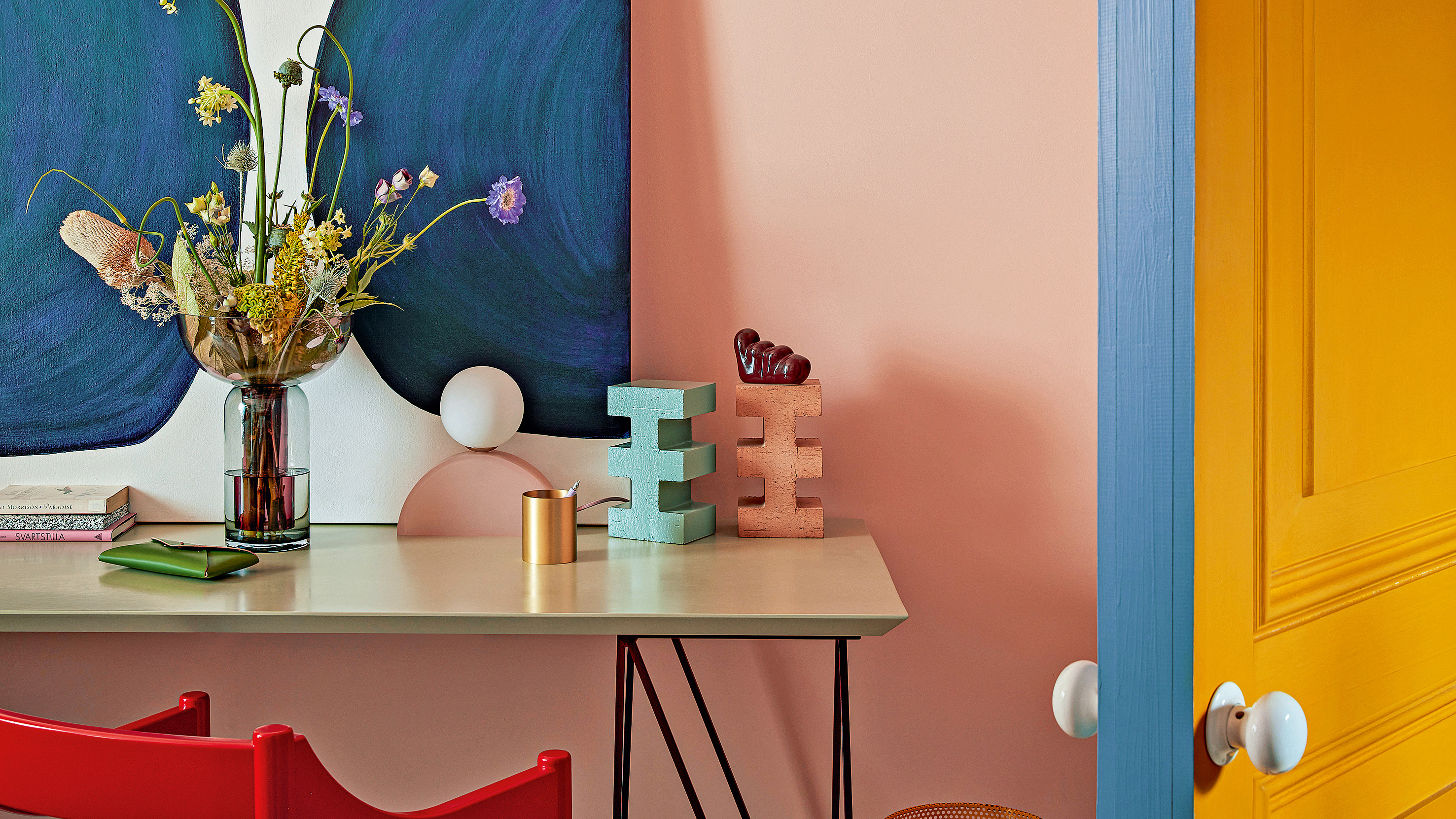
You'd think having to choose the perfect paint color would be enough right? But alongside having to pick the perfect hue of white/pink/green/grey/insert color of your choice, you also have to get the paint finish right. And honestly, paint finishes can be as important as the shade.
From eggshell to matte, limewash to chalk, there are more options than you might think, each unique with its own pros and cons. There's a lot to consider. What room are you painting? What's the lighting like? What size is it? Is it a high-traffic space? All of these questions (and more) will help you make the best decision when it comes to paint finishes.
As James Greenwood paint expert at Graham & Brown says, 'The key to any project is to research and make sure you select the right paint finish for your project, for example for your kitchen or hallway, an area that usually sees more boisterous behavior, use a resistance finish that is scuff resistant and washable. Or when painting woodwork select the appropriate finish for either interior or exterior, ensuring you prepare any surface before application.'
We've pulled together a handy guide that talks you through all the options, what their characteristics are, and where they work best so you can pick the best option for your paint ideas and projects.
What are the different types of paint finish?
Things can get a bit complicated when it comes to paint finishes, as every brand tends to have a different way of branding their paint finishes. As Helen Shaw, Director of Benjamin Moore explains, 'There are no particular standards in the paint industry for how to name sheen levels nor what % reflectance a particular name might refer to – each manufacturer has different names and reflectance levels for their paints.'
However, there do tend to be certain terms to look out for that will give you an indication of what the paint finish is – plus always read descriptions and order samples so you can see exactly how the finish looks in situ.
'Put the finishing statement on your paint color of choice by selecting a sheen that enhances the look of the surface. Sheen, or paint finish, is a measure of how much light reflects off a painted surface, resulting in gloss—or a lack thereof.' explains Helen.
The Livingetc newsletters are your inside source for what’s shaping interiors now - and what’s next. Discover trend forecasts, smart style ideas, and curated shopping inspiration that brings design to life. Subscribe today and stay ahead of the curve.
'The lower the sheen, the less reflective it is when the finish is dry.; adds Alexandra Sinclair, director of product information at Sherwin-Williams 'The higher the sheen, the more reflective. Flat and matte finishes diminish minor flaws and help hide imperfections because they reflect less light. Higher sheen finishes, like a semi-gloss or gloss, can highlight imperfections but can also be used as a tool to accentuate architectural features in a space, such as trim and molding.'
Helen explains that 'Sheens and glosses range on a scale from no shine to high shine. Different levels of sheen can affect how colors appear and add dimension to rooms. While there are many different types of sheen, you are most likely to see these key interior finishes:'
- Flat
- Matte
- Eggshell
- Satin
- Semi-Gloss
- High Gloss
There are also more specialist types of paint like limewash paint, chalk paint, clay paint, and then you've also got paint finishes for specific surfaces like exterior paints that are designed to withstand all weathers. We will cover all you need to know about those too.
There's also water-based v oil-based, but our advice is always go with water-based paints for interior projects. Rob Green, Co-Founder at COAT Paintsagrees, 'don't let anyone tell you that you need anything more than a water-based paint for standard interiors projects. Paint tech has come a long way so don’t listen to the myths around water-based paint not being good enough. The tick boxes you need to check is that the paint has the highest-grade water-based formula, is low VOCs and low odor.'
Flat paint finishes
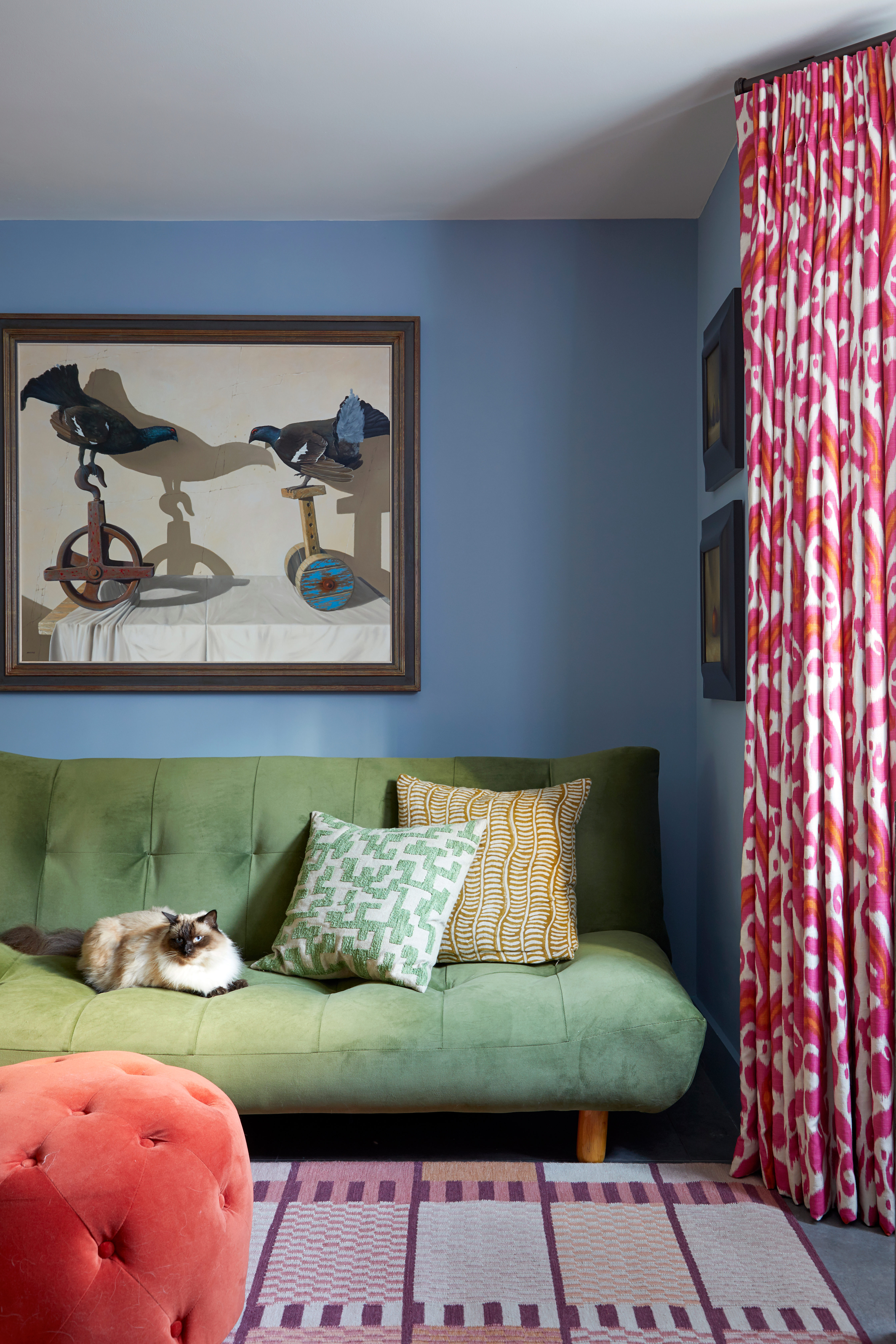
Flat paint, as its name would suggest, is the finish with the lowest level of sheen, the over all look is, well... flat.
'Flat paint is a term for a finish that does not reflect light, resulting in no sheen at all.; explains Helen. 'This lack of reflection allows more paint pigment to come through, is more forgiving of flaws, and allows for excellent hide, creating a uniform surface. Use caution when considering flat paint in high-traffic areas that require frequent attention. Stains are harder to remove from low-sheen paint, and constant rubbing or cleaning can result in burnishing.'
Flat paint works well with statement colors too, as this beautiful blue living room proves, as it has more pigment than finishes that have a sheen. It's really easy to apply and you'll often find it's the most affordable option too.
Best for: walls and ceilings – especially those with imperfections.
Matte paint finishes
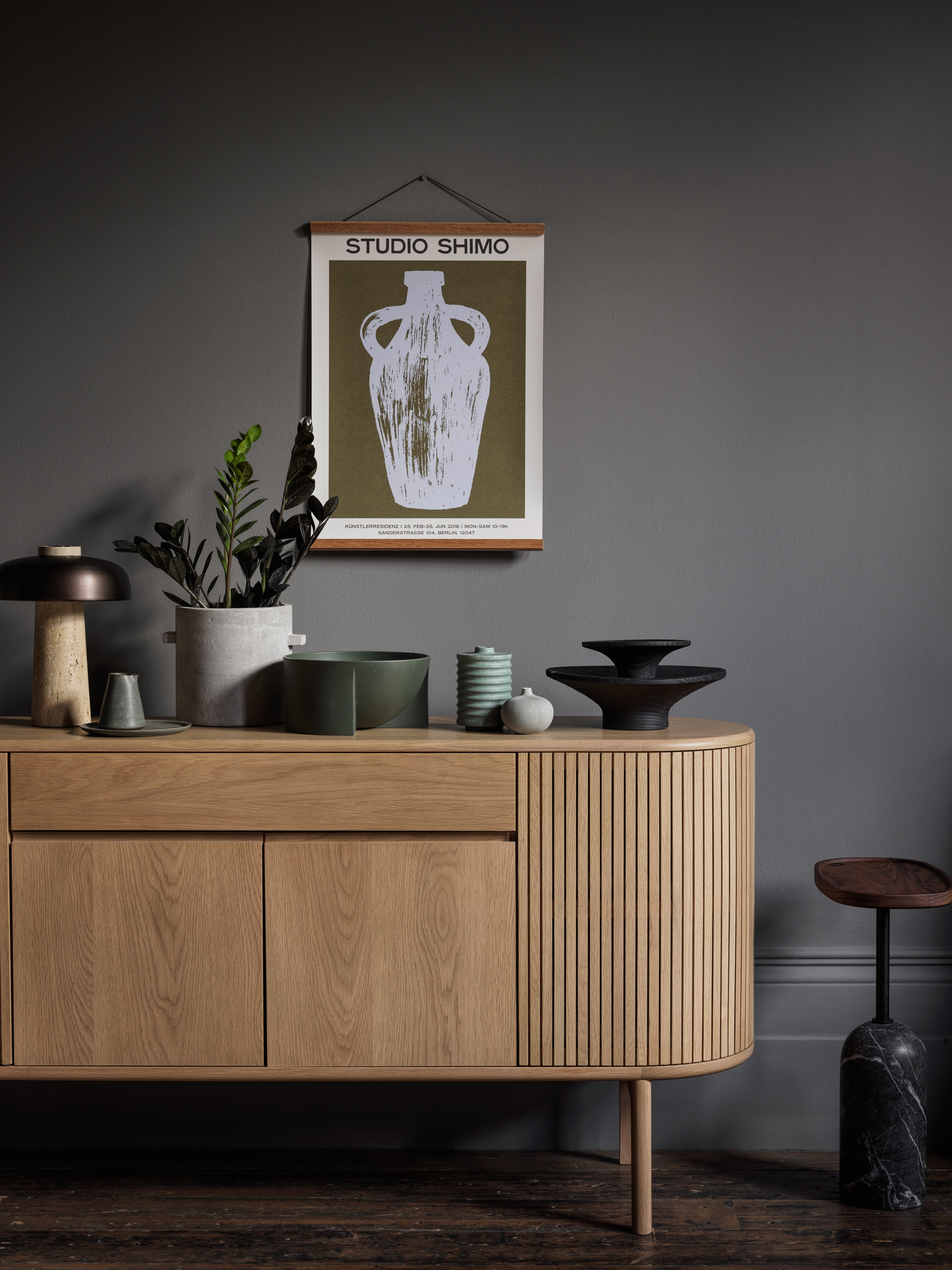
Matte paint finishes are having a bit of a moment, and have been top of the interior design trends for years now. Despite the name, a matte finish still has the tiniest of sheens to it, it's super subtle and you probably won't even notice a reflection but it has more depth than a flat finish.
'Matte finish is nearly as shine-free as flat, again providing excellent hide and depth of color, with slightly more durability. Matte finish paint also withstands frequent washing, even when applied in busier areas like hallways and family rooms. A matte look lends a luxurious touch to many interior spaces, including bedrooms and dining rooms.' says Helen Shaw.
Due to its velvety qualities, a matte finish works well with darker shades, giving them a softer, less dramatic effect. Consider using a matte finish in a dark living room for a really cocooning space.
Best for: bedrooms and living rooms.
Eggshell paint finishes
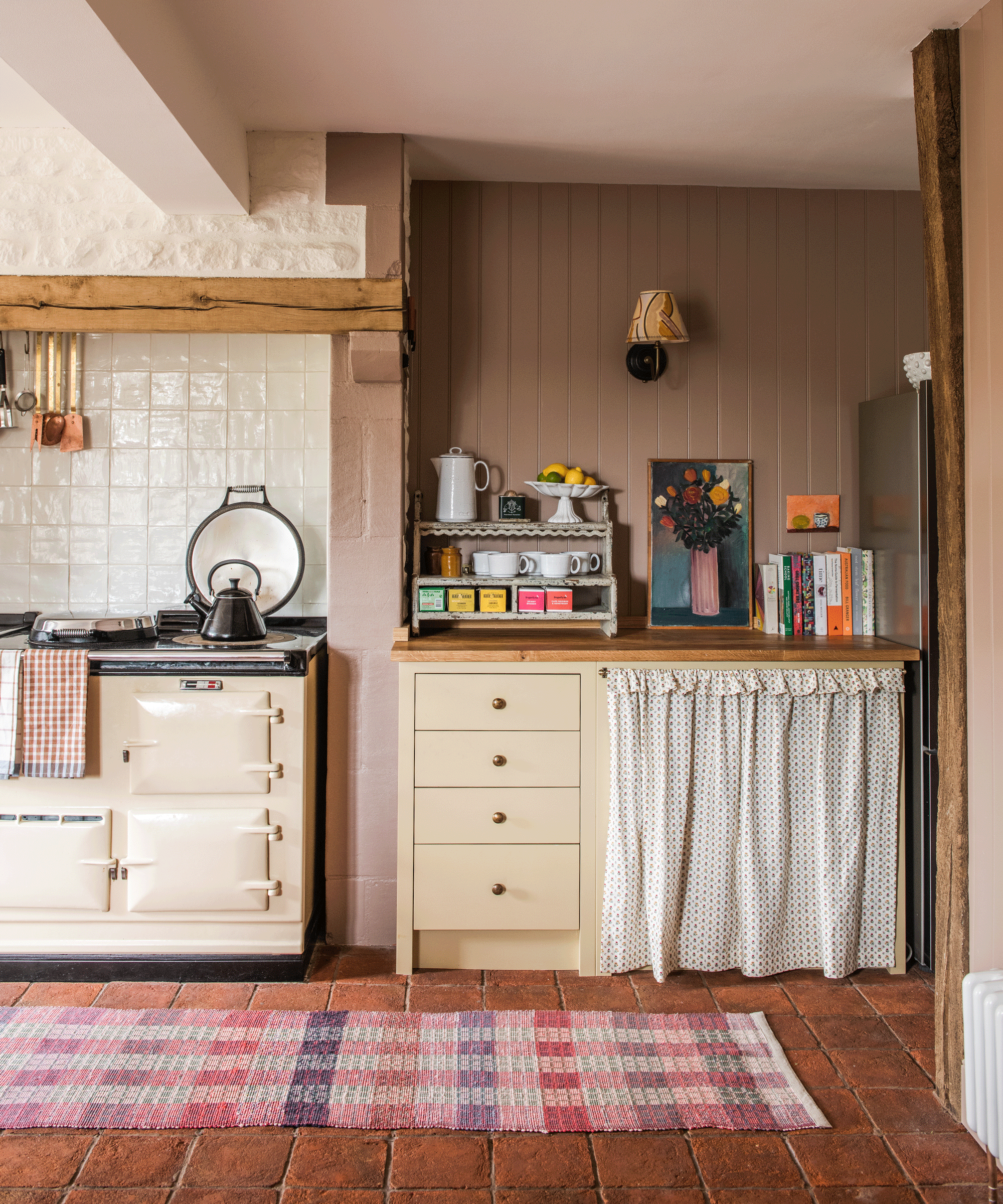
Not too shiny, but not too matte it is the Goldilocks of paint finishes. Perhaps why Eggshell is potentially one of the most favored. It's got an almost velvety appearance, when the light hits it's a soft sheen, very gentle.
'Eggshell finish, perennially popular with professional and DIY painters alike, has a low-sheen reminiscent of flat or matte, but it is infinitely more durable than its namesake.' says Helen. Eggshell is far better for high traffic areas than flat and you can get formulas that you can clean down. It's not quite as durable as a gloss or a semi-gloss but still suitable for high-traffic areas and exterior use. It can also work well on trims and doors if you want to avoid that very glossy look on your woodwork.
Best for: small rooms, hallways, kitchens, and kid's rooms.
Satin paint finishes
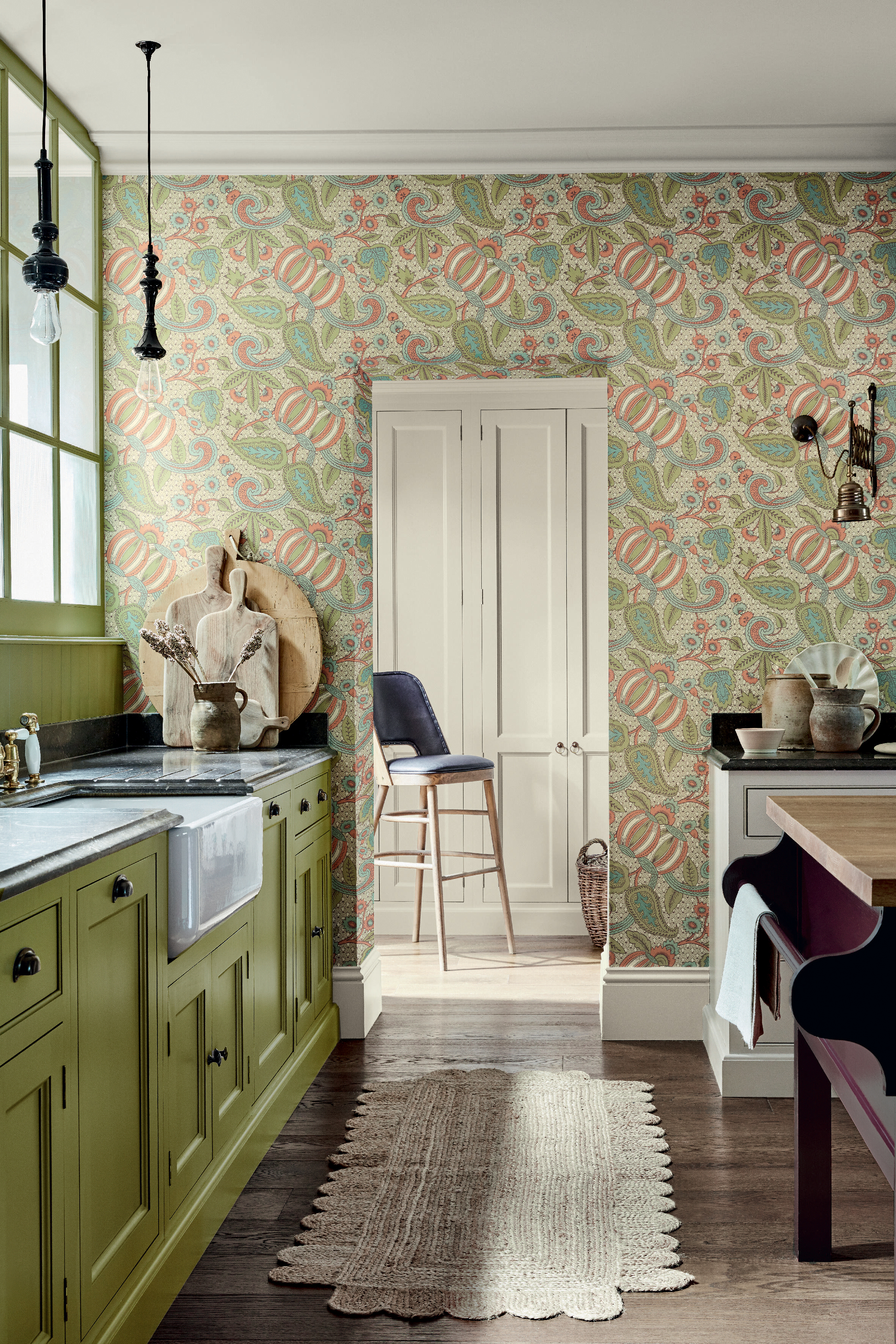
Super similar to eggshell, satin has slightly more sheen. It's actually bang in the middle of the sheen spectrum – halfway between flat and high-gloss. It's the ideal paint choice if you are after something durable to cover a high-traffic area like kitchen cabinets or floorboards but don't want that super sheen.
'Often confused with other finishes, the difference between eggshell and satin paint is that satin delivers a higher gloss, while offering better stain resistance and durability than lower sheens, including eggshell.' explains Helen. 'Satin paint is ideal for areas that crave definition. Use its distinctive luster to highlight windows, shutters, trim, and even interior doors.'
Rob adds, 'Soft sheen, Silk or Satin are all names for paint you need to use when decorating a kitchen or bathroom. It’s paint that is easy to clean, moisture-resistant (so it won’t go moldy) and it has high durability, to handle wear and tear in high use rooms. You can also use it in kid’s bedrooms or anywhere you are expecting to wipe down walls!'
'The glossier the paint, the more light it reflects, so brush or roller marks are more likely to show up as well as any imperfections on the wall. A top tip is to use a foam roller head to help achieve a more flawless finish with a Soft sheen or Silk paint.'
Satin, much like eggshell is a good choice for when space is tight like in a small living room. No matter what color you go for, the finish will ensure light bounces around the space.
Best for: workwood and kitchen cabinets.
Semi-gloss paint finishes
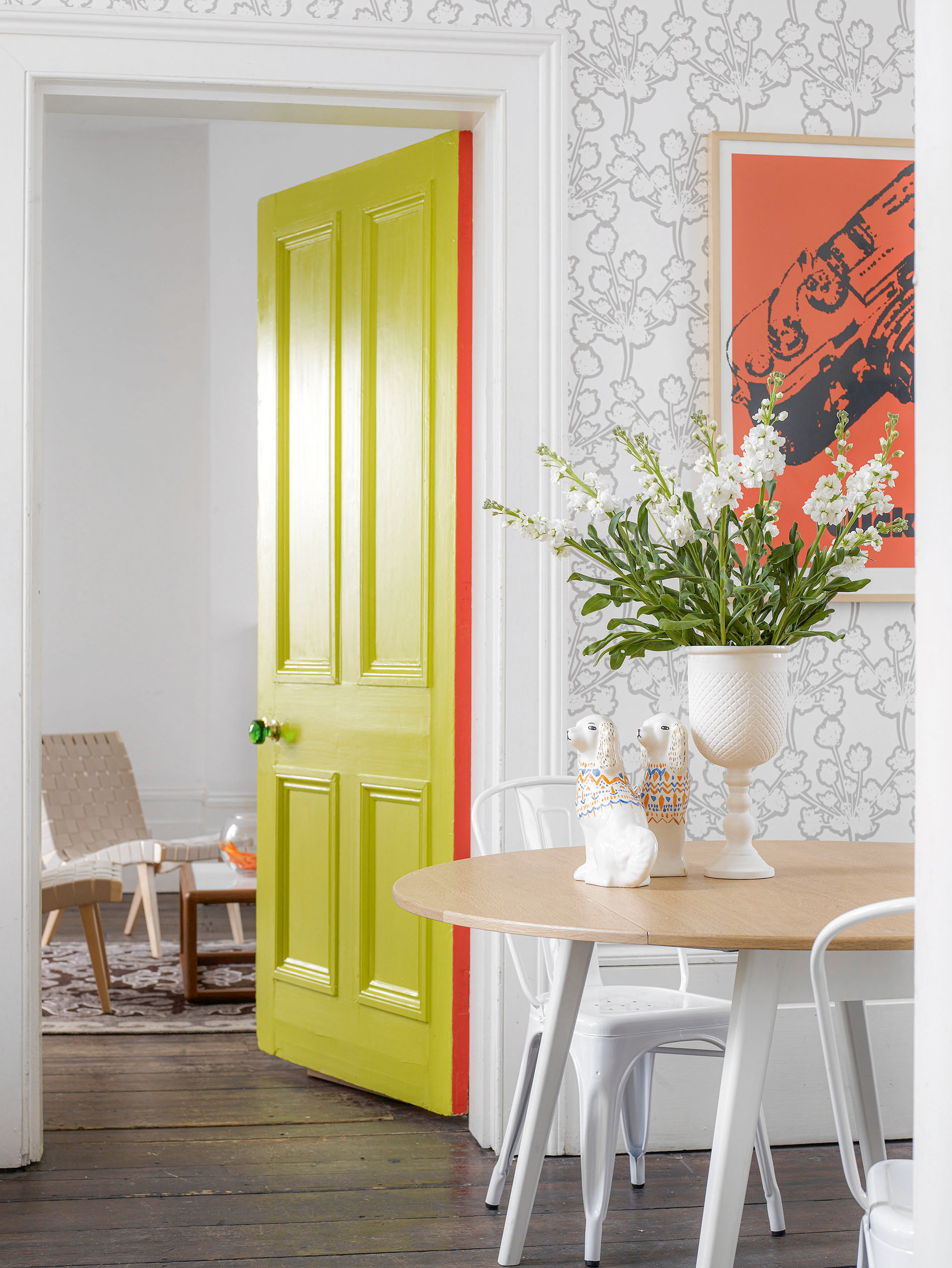
Semi-gloss is pretty self-explanatory, shinier than eggshell or satin but not as dramatic as high-gloss it still has that softness to it but that's a definite reflective quality too. It's perfect for high-traffic areas as well as high-moisture rooms like bathrooms.
Do bear in mind that as the sheen gets higher, the more a finish will show imperfections, so avoid semi-gloss over large uneven surface areas. Sem-gloss works best in small doses, as Helen explains, 'The luminous look of a semi-gloss paint is perfectly suited to highlight the architectural details of your home and create dimension on millwork, trim, and doors.'
Best for: doors, floorboards, and trims.
High-gloss paint finishes
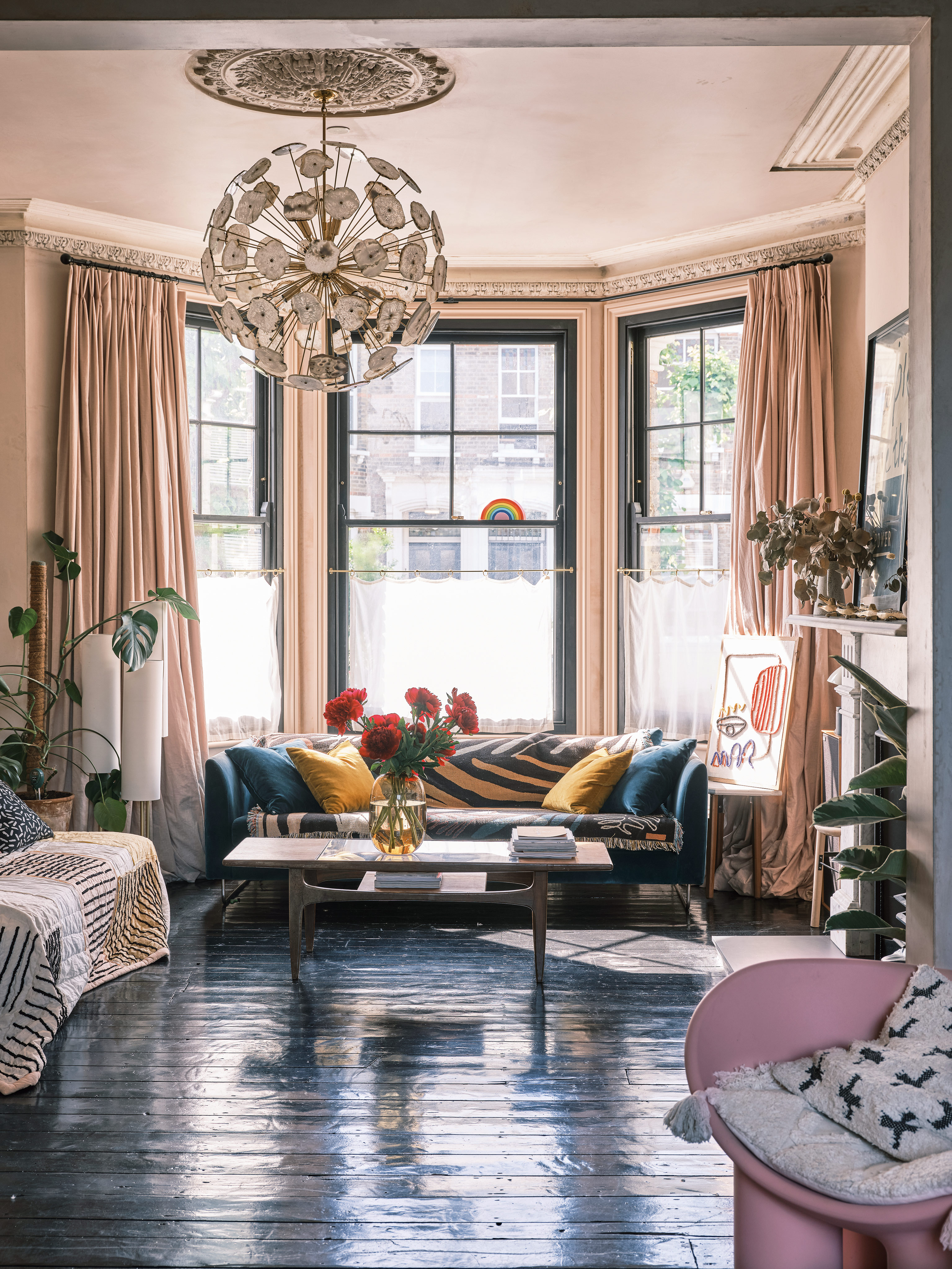
High-gloss is definitely having its moment right now. It was once pretty much shunned from the world of interiors and all anyone ever wanted to do was just strip it down (a hard job when you are working with an oil-based high-gloss). But times have changed...
'Offering a mirror-like finish, high gloss sits on top of the sheen chart.' says Helen. 'Many interior designers (and adventurous homeowners) like to experiment with high gloss paint in unexpected areas, such as the ceiling or an accent wall. Keep in mind, however, that high gloss paints require careful application and preparation best left to a professional painter.'
'If you’re committed to a DIY-approach, practice your technique and prime any surfaces to ensure they are even and clean prior to paint application. Since a gloss finish reflects light and can accentuate blemishes, avoid using it on areas that are not completely smooth.'
David Harris, Design Director at Andrew Martin adds, 'The thought of gloss paint can be scary. Lots of preparation, and it's often a product thought of as thick and odorous, tricky to apply, and difficult to clean up afterwards. Times have changed!'
'Many gloss paints are now water-based and need barely any preparation, have virtually zero odor, and really easy to apply and work with. No primers are needed, a quick rub down of existing paintwork and you can paint straight over the top in minutes. Gorgeous on front doors, paneling and woodwork.'
Best for: doors, window frames, floorboards, woodwork and ceilings (if you are feeling brave).
Chalk paint finishes
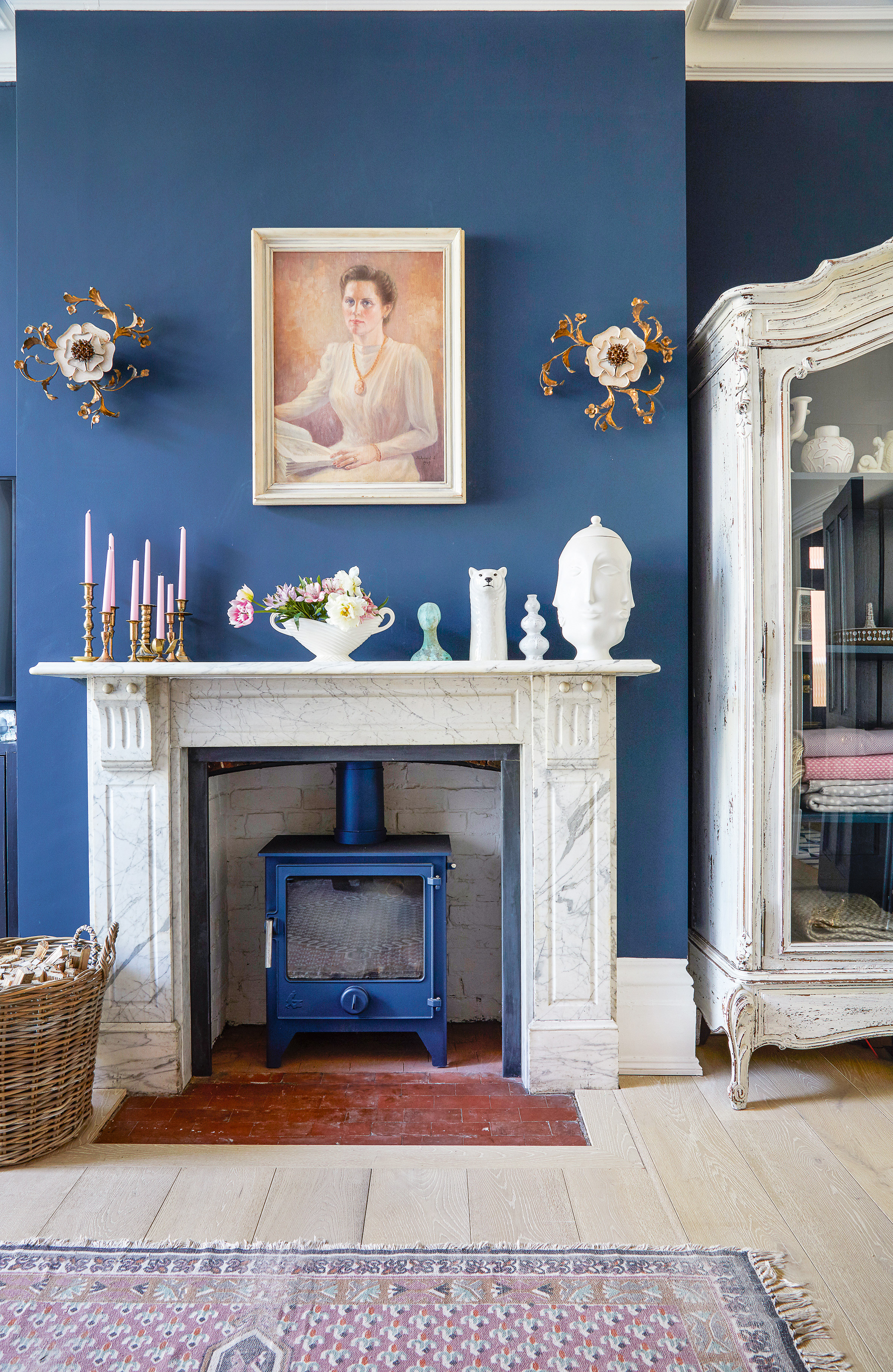
Chalk paint is such a fool-proof finish and perfect for a quick weekend project like painting furniture. The fact that by its very nature it's meant to look imperfect and a tad rustic means you don't have to be overly neat – perfect if you are a bit of a DIY novice. It rarely needs any prep work like sanding or priming too.
As the name would suggest chalk paint has a lovely, soft, chalk-like finish and you can create many different looks with it. Even though this paint finish is often associated with more traditional, farmhouse styles, you can create very modern looks with it too. Left bare chalk paint will dry down to a very soft, velvety finish however you can create different effects depending on how you seal it.
Chalk paint expert Annie Sloan says, 'Chalk Paint™ gives a velvety matte finish. People often think it’s called Chalk Paint™ because chalk is a key ingredient, but it’s actually because of how the paint looks. This luxurious, textured finish plus the depth of pigment means that Chalk Paint™ does give a high-end feel, which is brilliant in a small space when you can’t use so many colors, ornaments, and textiles to create that atmosphere.'
Best for: furniture and walls.
Limewash paint finishes
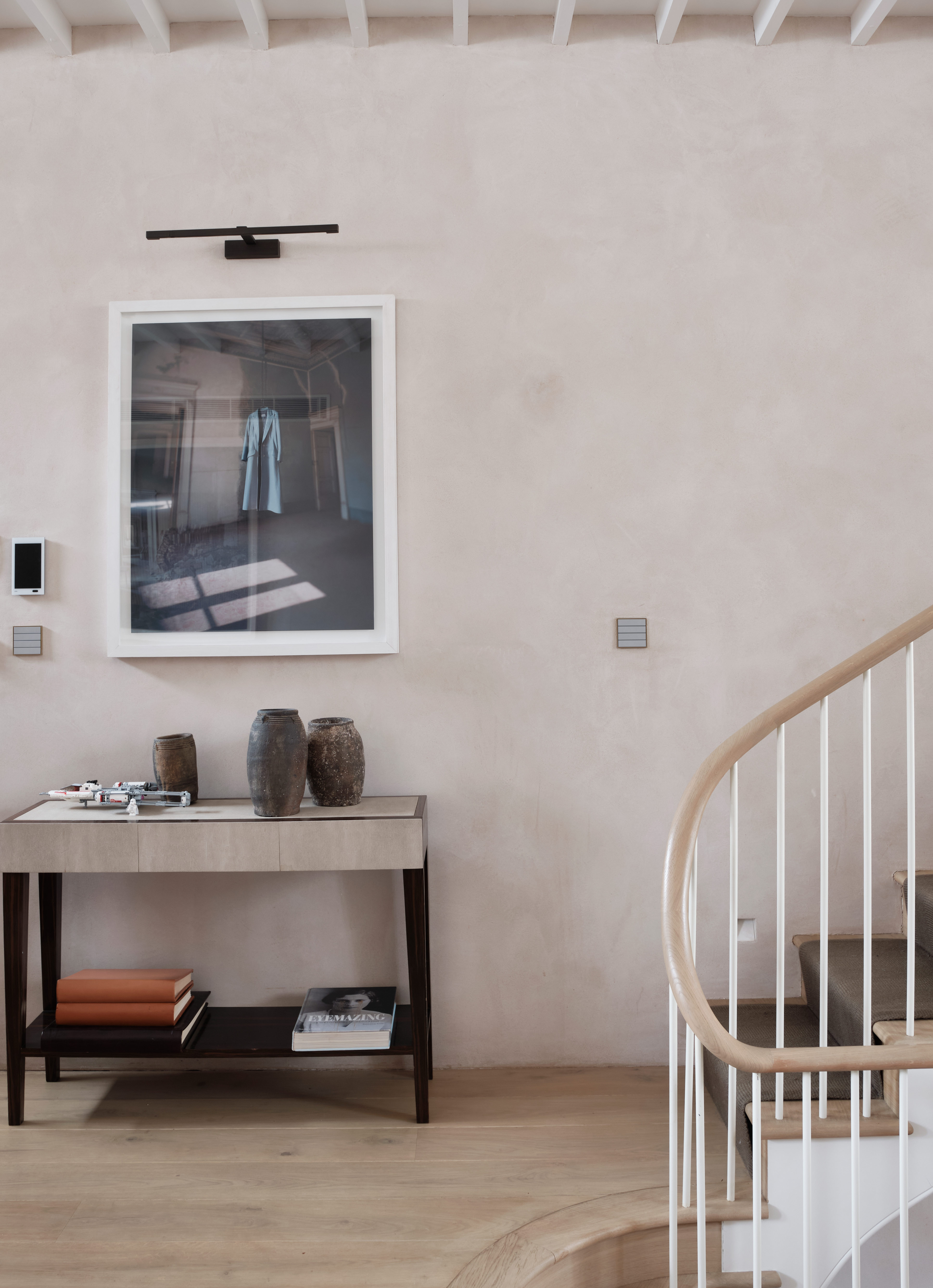
Limewash paint finishes, similar to chalk paints are a lovely way to add texture and depth to a room, and can add a rustic touch to a more minimalist style, as seen in this hallway. Limewash is recognizable by its matte finish and almost cloudy appearance, almost like whatever surface it's been painted on has naturally aged.
Ruth Mottershead, Creative Director Little Greene explains that 'Like Distemper, Limewash is a breathable finish making it suitable for old and damp-problematic walls. Unlike paint, Limewash penetrates the surface and the color is built up by applying successive coats.'
'When using Limewash, we would always recommend applying with a brush. It is easy to apply and will require four coats for full coverage. For the highest-quality appearance, keep final brush strokes all in the same direction and never go over paint that has already begun to dry.'
Best for: walls.
What is the best paint for high-traffic areas?
The higher the gloss the more durable the paint is a general rule of thumb, as Helen explains, 'The most popular sheens for walls are flat or matt and for woodwork eggshell or satin. This is because flat sheens are good at hiding imperfections on the surface, so plaster finishes look more flawless, whereas higher sheens like satin and eggshell tend to be more washable and durable, so are easier to maintain on surfaces that get more wear and tear.'
Avoid matte or flat paints and for really high-traffic areas like if you have painted floorboards you'll want to look for extra qualities too, like is the finish is wipeable and splash-proof?
What paint finishes are on trend?
While not so long ago a paint finish would have really been considered a trend, they are now seen as being as important as color trends.
'There has been a trend of people using higher sheens on ceilings for example semi-gloss. This is to give the room a feeling of more light.' explains Helen.
'Also, as colors have got a bit darker over the last few years and people consider color drenching as a trend, mid sheens for walls has become more popular as the deeper colors have more depth and the same paint can be used on multiple surfaces.'
Joa Studholme, Farrow & Ball Colour Curator, adds 'Décor is moving forward. Function goes hand in hand with ornament, using colors and finishes in unusual ways. There is something so familiar and comforting about a painted floor – a chequerboard pattern in Modern Eggshell instantly transports you to the past.'
'A nostalgic feel continues painting the lower half of your walls in a more durable finish (and color) such as Modern Emulsion or Full Gloss and the upper walls and ceiling in the flatter Estate Emulsion. This age-old form of decorating introduces color just below eye level to retain a light and airy atmosphere above, while also providing durability and texture.'
'We are seeing the use of higher sheen finishes more and more - the traditional values of Full Gloss are perfect for use in the home in 2022 and can be introduced sparingly and in surprising ways (perhaps on a door or a kitchen unit) to add a modern feel with a suitably vintage flavor.'

Formerly the Digital Editor of Livingetc, Hebe is currently the Head of Interiors at sister site Homes & Gardens; she has a background in lifestyle and interior journalism and a passion for renovating small spaces. You'll usually find her attempting DIY, whether it's spray painting her whole kitchen, don't try that at home, or ever-changing the wallpaper in her entryway. She loves being able to help others make decisions when decorating their own homes. A couple of years ago she moved from renting to owning her first teeny tiny Edwardian flat in London with her whippet Willow (who yes she chose to match her interiors...) and is already on the lookout for her next project.